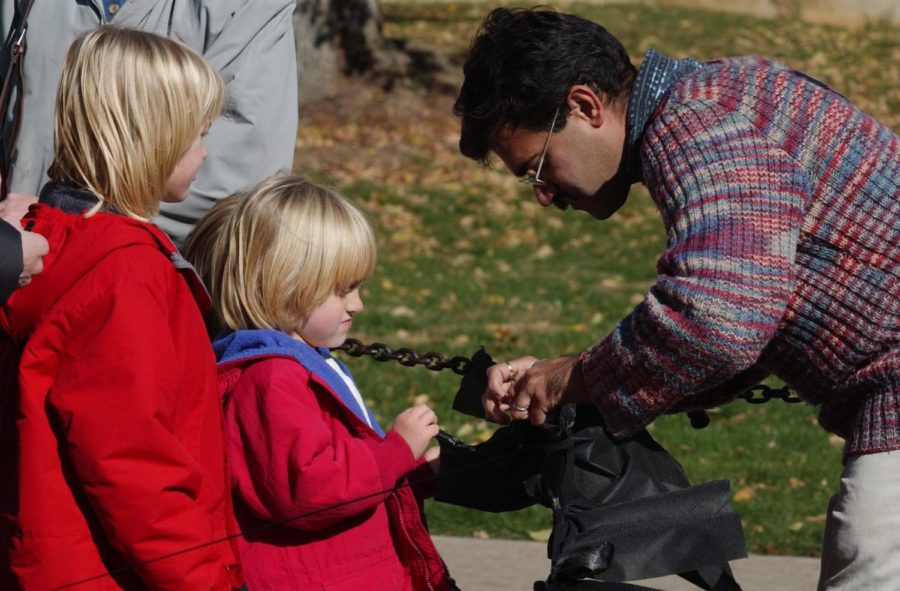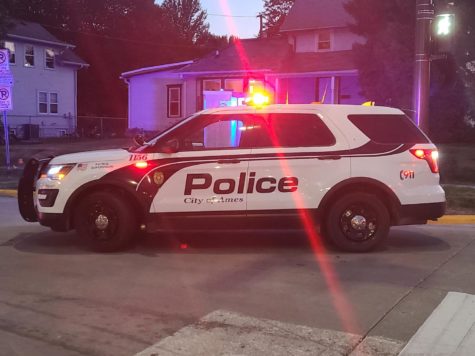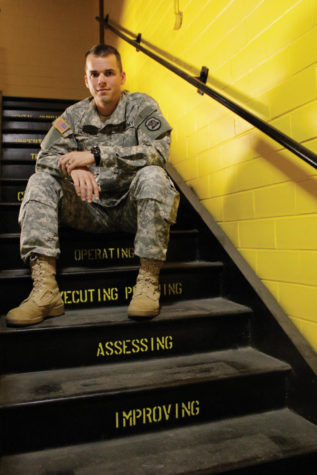Research shows 9/11 media affected Americans’ psyche
File photo: Courtesy of Craig Houtz/Centre Daily Times via MCT
Penn State student Jitesh Malik, right, helps Lauren Giel, 8, and Emily Giel, center, attach a row of black, fabric panels Sunday, November 11, 2001, to a memorial to victims of the September 11 terrorist attacks.
September 9, 2011
As the 10-year anniversary of Sept. 11 draws near, many will be able to recall with great accuracy the exact moment at which they received news of the terrorist attacks.
Many also will recall the stress and anxiety brought on partly by the extensive media coverage of the event.
Brian Monahan, assistant professor of sociology, recently wrote a book called”The Shock of the News,” in which he calls this coverage a “public drama.”
“It has to do with how we increasingly like to tell our news in story form,” Monahan said. “It becomes a story with characters and dramatic moments and dramatic settings, with a lot of attention on vivid images.”
Monahan said that many other stories, such as the Casey Anthony murder trial, also have been made into public dramas.
Although this approach to news reporting might help people make sense of confusing situations, it is likely to distort the facts and oversimplify important matters by focusing mostly on human interest stories, Monahan said.
“One of the themes of the public drama is advancing these emotional connections to the public,” Monahan said. “You sit back and you rely more on this news coverage, and it’s hard to be cynical on those first few days [after the 9/11 terrorist attacks], so those core themes and core messages really take hold.”
David Vogel, professor of psychology, said exposure to this type of media can cause enough trauma to warrant attention from a mental health professional.
“The closer you are to something, the more likely it may impact you, but it’s really all about how much we internalize it and how much it impacts our identity,” Vogel said. “So when the terrorist attacks happened, the number of clients that showed up to the counseling center here went up.”
Vogel said the stress caused by traumatic events can trigger previous traumas, or it can increase the chances of developing new problems.
“The constant fear of the terror attacks can take up resources so it’ll be harder to cope with other things as well,” Vogel said. “More strain could make you more likely to produce relationship problems or anxieties in general.”
A considerable amount of empirical research has shown that many people who simply watched the events on television developed long-term stress reactions, including post-traumatic stress disorder.
However, researchers also have found that after Sept. 11, people were more likely to engage in altruistic behaviors such as donating blood and giving money to charity.
Vogel said social support and good coping strategies can help prevent the types of negative psychological reactions caused by events such as Sept. 11.
“With kids in particular, I think when there are stressors, it’s good having parents that are supportive and willing to talk about it generally,” Vogel said. “As we talk to friends and family, that’s one way we deal with it and come to understand it and cope with it.”










